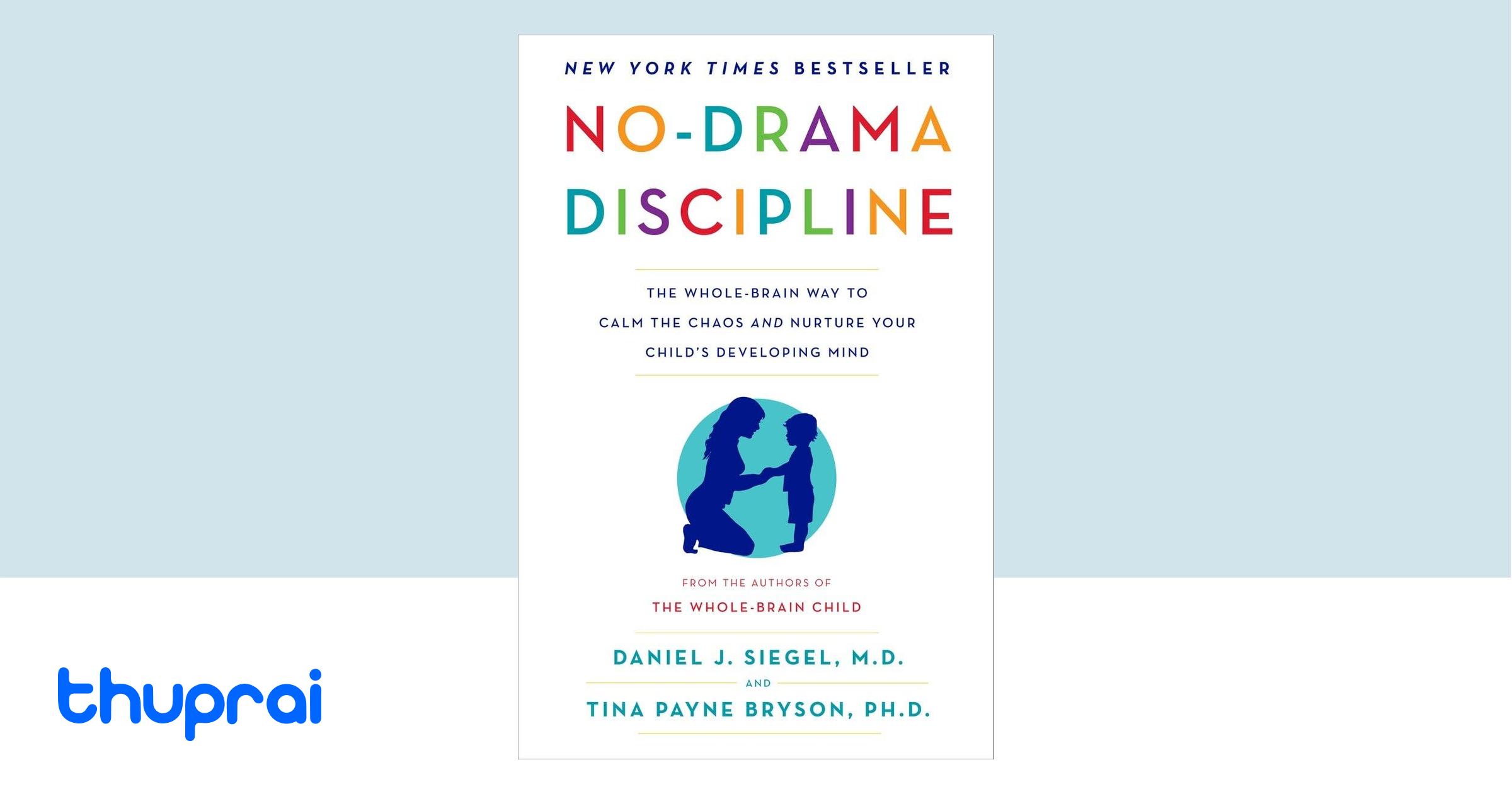
Drama-Free Discipline: A Guide to Effective and Empathetic Parenting
Navigating the complexities of parenting often feels like walking a tightrope. One of the most challenging aspects is discipline – how do you guide your children, teach them right from wrong, and foster responsible behavior without resorting to shouting matches, power struggles, and emotional meltdowns? The answer lies in drama-free discipline, a proactive and empathetic approach that focuses on prevention, communication, and understanding.
This article explores the principles of drama-free discipline, offering practical strategies for parents seeking to create a more peaceful and effective home environment. We’ll delve into the reasons why traditional disciplinary methods often fail, the importance of understanding your child’s developmental stage, and how to implement consistent, age-appropriate consequences. Ultimately, the goal is to cultivate a positive and respectful relationship with your child while instilling valuable life skills.
Why Traditional Discipline Often Fails
Many parents rely on reactive disciplinary tactics, such as yelling, time-outs (used punitively), and physical punishment. While these methods may provide immediate results, they often come at a cost. They can damage the parent-child relationship, create fear and resentment, and fail to teach children the underlying reasons for appropriate behavior. Moreover, these methods often escalate into power struggles, creating a cycle of negativity and drama.
- Lack of Understanding: Traditional discipline often fails to address the root cause of the misbehavior. Children may be acting out due to frustration, boredom, or a lack of understanding of expectations.
- Emotional Reactivity: When parents react emotionally, they are less likely to be calm and rational, leading to inconsistent and unfair consequences.
- Damaged Relationships: Shouting and punishment can erode trust and create distance between parents and children.
- Focus on Punishment, Not Teaching: Traditional methods often focus on punishing bad behavior rather than teaching children alternative, more appropriate responses.
The Principles of Drama-Free Discipline
Drama-free discipline is a proactive and positive approach that emphasizes prevention, communication, and understanding. It involves creating a supportive environment where children feel safe, respected, and empowered to make good choices. Here are some key principles:
Prevention is Key
One of the most effective ways to minimize drama is to prevent misbehavior from occurring in the first place. This involves creating a structured and predictable environment, establishing clear expectations, and providing children with appropriate outlets for their energy and emotions. For example, if your child tends to get restless during long car rides, bring along books, games, or music to keep them entertained. If they struggle with transitions, provide advance warning and a clear explanation of what to expect. By anticipating potential challenges and proactively addressing them, you can significantly reduce the likelihood of misbehavior.
Clear and Consistent Expectations
Children thrive on structure and predictability. Establish clear and consistent expectations for behavior, and communicate them in a way that is easy for your child to understand. Avoid vague or ambiguous instructions, and be specific about what you expect. For example, instead of saying “Be good,” say “Please use a quiet voice and keep your hands to yourself while we are at the library.” Consistency is also crucial. Enforce the same rules and consequences every time, regardless of your mood or circumstances. This will help your child understand the boundaries and learn to take responsibility for their actions. Consistent application of drama-free discipline techniques is key to long-term success.
Empathy and Understanding
Drama-free discipline requires understanding your child’s perspective and responding with empathy. Before reacting to misbehavior, take a moment to consider the underlying reasons for their actions. Are they tired, hungry, frustrated, or feeling overwhelmed? By acknowledging their emotions and validating their feelings, you can de-escalate the situation and create an opportunity for teaching and learning. For example, if your child is having a tantrum because they can’t have a toy, you might say, “I know you really want that toy, and it’s frustrating when you can’t have it. But we can’t buy it today. Let’s find something else to do.”
[See also: Understanding Child Development Stages]
Effective Communication
Open and honest communication is essential for drama-free discipline. Talk to your child about their feelings, listen to their concerns, and explain the reasons behind your rules and expectations. Use “I” statements to express your feelings without blaming or accusing. For example, instead of saying “You always make a mess!” say “I feel frustrated when I see toys left all over the floor because it makes it difficult to clean up.” Encourage your child to express their feelings in a respectful way, and teach them problem-solving skills to help them resolve conflicts peacefully. This kind of communication is vital for drama-free discipline.
Age-Appropriate Consequences
Consequences are an important part of discipline, but they should be age-appropriate, fair, and related to the misbehavior. Avoid using punishment that is humiliating, degrading, or physically harmful. Instead, focus on consequences that teach children responsibility and help them learn from their mistakes. Some examples of effective consequences include time-outs (used as a calming period, not a punishment), loss of privileges, and making amends. Explain the reason for the consequence and provide your child with an opportunity to reflect on their actions. The application of consequences in drama-free discipline should always be calm and consistent.
Practical Strategies for Implementing Drama-Free Discipline
Now that we’ve explored the principles of drama-free discipline, let’s look at some practical strategies for implementing it in your home.
Create a Calm-Down Space
Designate a quiet and comfortable space where your child can go to calm down when they are feeling overwhelmed or upset. This could be a corner of their bedroom, a cozy reading nook, or even a designated spot in the living room. Fill the space with calming items such as books, stuffed animals, or a weighted blanket. Teach your child how to recognize when they need to take a break and encourage them to use the calm-down space as a tool for self-regulation. This is a crucial component of drama-free discipline.
Use Positive Reinforcement
Focus on catching your child being good and rewarding positive behavior. Praise them for following the rules, completing chores, and showing kindness to others. Use specific and descriptive praise to let them know exactly what they did well. For example, instead of saying “Good job,” say “I really appreciate how you helped your brother with his homework. That was very kind of you.” Positive reinforcement is a powerful tool for shaping behavior and creating a positive home environment. Integrating positive reinforcement is a key element in drama-free discipline.
Practice Active Listening
When your child is talking to you, give them your full attention. Make eye contact, nod your head, and ask clarifying questions to show that you are engaged and interested in what they have to say. Avoid interrupting or judging their feelings. Active listening helps children feel heard and understood, which can reduce conflict and improve communication. This is a vital skill in practicing drama-free discipline.
Model Respectful Behavior
Children learn by observing the behavior of the adults around them. If you want your child to be respectful, communicate effectively, and manage their emotions in a healthy way, you must model these behaviors yourself. Avoid yelling, name-calling, and other forms of disrespectful communication. Show empathy and understanding towards your child, and treat them with the same respect that you expect from them. Remember, your actions speak louder than words. Modeling respectful behavior is central to drama-free discipline.
Be Patient and Consistent
Implementing drama-free discipline takes time and effort. Don’t expect to see results overnight. Be patient with your child and with yourself. There will be setbacks and challenges along the way. The key is to remain consistent in your approach and to continue to reinforce the principles of prevention, communication, and understanding. Over time, you will see a significant improvement in your child’s behavior and in your relationship with them. The consistent application of these principles is what makes drama-free discipline so effective.
The Long-Term Benefits of Drama-Free Discipline
While drama-free discipline may require more effort and patience in the short term, the long-term benefits are well worth it. By creating a supportive and respectful environment, you can help your child develop self-discipline, responsibility, and strong emotional intelligence. They will learn to manage their emotions, resolve conflicts peacefully, and make responsible choices. Moreover, you will strengthen your relationship with your child and create a bond of trust and understanding that will last a lifetime. Investing in drama-free discipline is an investment in your child’s future.
In conclusion, drama-free discipline is not just about managing behavior; it’s about fostering a positive and respectful relationship with your child. By focusing on prevention, communication, and understanding, you can create a home environment where children feel safe, supported, and empowered to thrive. So, take a deep breath, embrace the principles of drama-free discipline, and embark on a journey of positive parenting that will benefit both you and your child for years to come. The journey towards drama-free discipline is a rewarding one.

